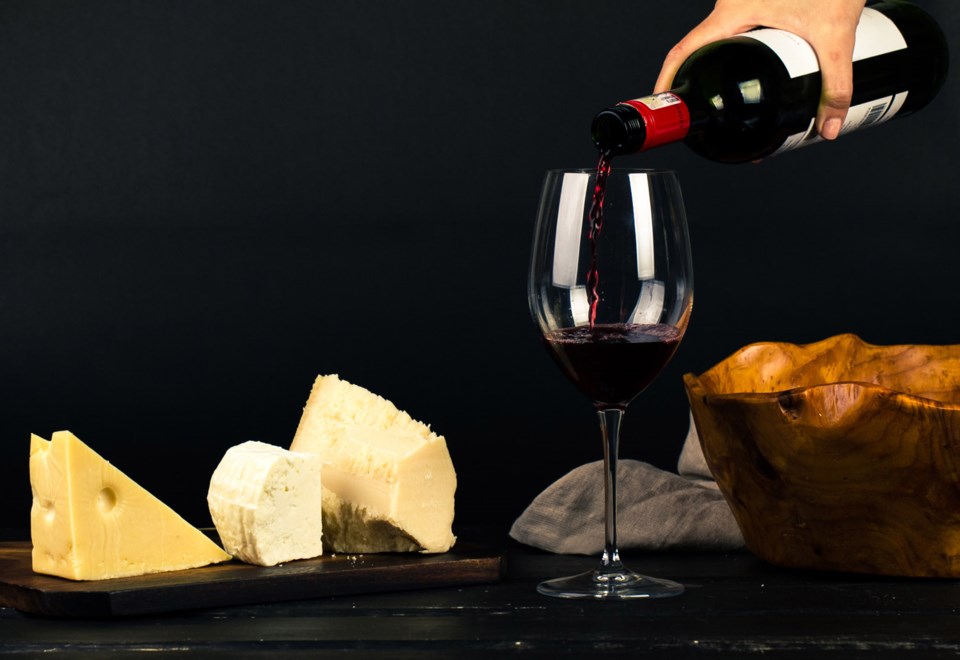When you’re out shopping for wine this holiday season, both for the table and for under the tree, the bottles you buy can make a big difference to our local economy and our green spaces.
Wineries and industry experts say shopping locally pours money back into our area, supporting jobs and contributing to taxes. It also helps save Niagara’s green space, which is under threat.
Debbie Zimmerman, chief executive officer (CEO) of Grape Growers Ontario (GGO), said wine is one of the highest value-added products in the country, and for every bottle of VQA wine bought, $98 is generated for the local economy.
The wine industry in Niagara supports a large variety of sectors, not just grape growing and wine manufacturing, but mechanics, equipment manufacturers and tourism.
According to a 2019 study by Wine Growers Ontario, the industry contributes $5.49 billion to the province of Ontario. It supports 471 growers, 22,385 winery jobs, 5,888 tourism jobs and 428 supplier jobs.
Numbers provided by the Town of Lincoln show in 2016, the area represented 21 times the provincial average of craft beverage manufacturing jobs, demonstrating the importance of the wineries to the local employment.
Erin Mitchell, president of Megalomaniac Wines, said shopping locally for wines during the holiday season helps support the wine industry after the tourism season is over.
“We really try to appeal to locals to have them support us from November to May,” she said. If fewer locals visit wineries during winter, they may have to wind down parts of the operation such as the restaurants and retail stores.
And it’s not just the economy that benefits, but also our green spaces, which are under threat. Since wineries need fields to grow grapes, as long as wine is made, those green spaces will be protected.
“Growers are the backbone of green spaces,” said Zimmerman, pointing out that people like to sit and sip in vineyards, not production plants.
Niagara is blessed with the perfect conditions, both geologically and meteorologically, to produce good wines. But once that land is gone, it’s gone, said Zimmerman.
“Growers are maintaining this (land) on behalf of the province and the country,” she said.
And Mitchell sees shopping for wines locally as a win-win, as guests can do a tasting or dine in the restaurant while getting their Christmas wines.
“Not only (do) they have a great experience … but also get their Christmas shopping done,” she said.
And shopping locally at wineries gets you your own personal shopping adviser, according Jo Pacinda, retail and sales director at Domaine Queylus.
“It feels more personal, more curated,” she said. “Canadians are well-known for their hospitality … we’re so grateful for any customer who walks in.”
Even if you’re not in the market for wine, shopping local can have a huge impact on the local economy.
Mishka Balsom, CEO of the Greater Niagara Chamber of Commerce, highlights the important of shopping local.
“About 68 per cent of the money spent at a local business remains locally,” she said. “So that is a huge support. So when we shop local, when we make purchases locally, (we know) that actually stays and is giving back to the economy.”
To promote that, the Town of Lincoln has created a local business directory with listings for shopping, wineries and bars, restaurants, farms and markets. It can be found at niagarabenchlands.ca.
“The website is really built out to encourage locals and visitors to see what the area has to offer,” said Paul Di Ianni, director of economic development and communications at the Town of Lincoln.
“We encourage everyone to get out as much as possible and shop local.”
Chris Pickles is a Local Journalism Initiative reporter for Niagara This Week. His reporting is funded by the Canadian government through its Local Journalism Initiative.



